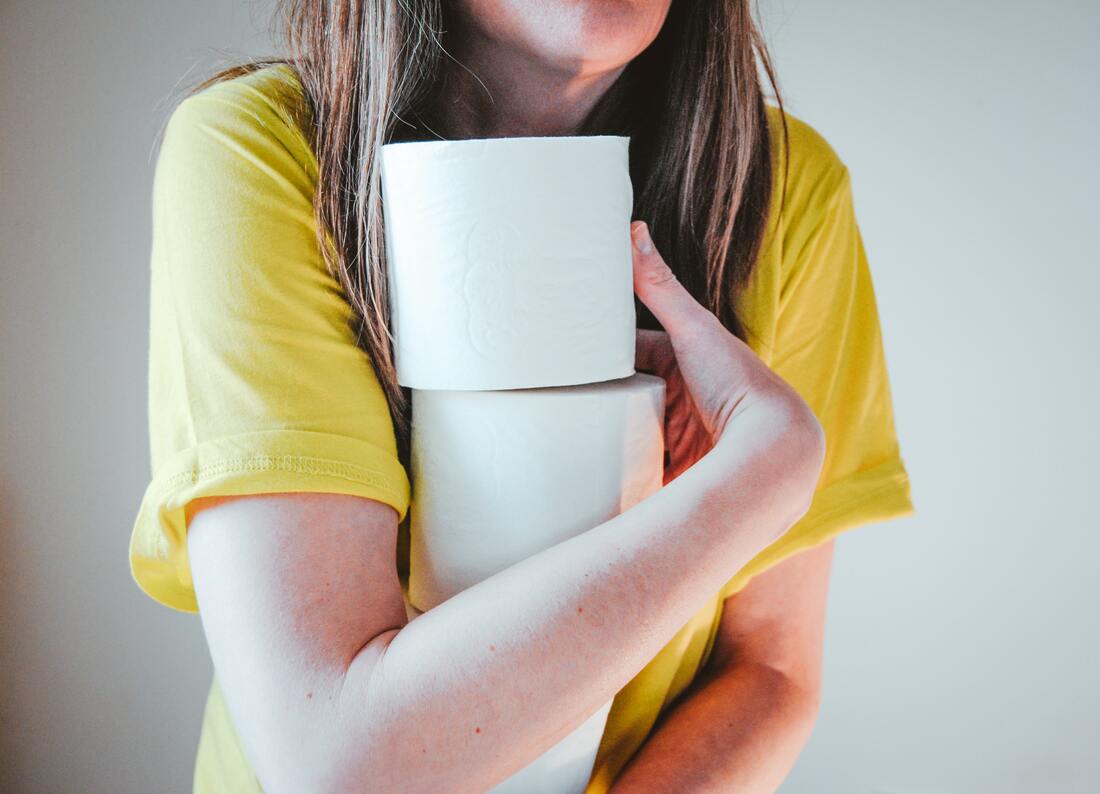Many of us are wondering how best to tend to our mental health whist we are hunkering down, waiting for the global, category five hurricane to pass. Aside from adhering to personal hygiene and social distancing protocols, there is little more we can do to curb spread of COVID-19. Virulent panic, however, is a different story. In this article we will explore fear’s true purpose, the problems we are likely to encounter when we become overly attentive to fear (i.e., panic), and what we can do to step out of fear once it has fulfilled its purpose. Healthy fear is meant to wake us from denial and get us to take action. Without fear, it is likely we would still be rubbing dirty hands all over our faces and gathering in public spaces. When we listen to fear and respond accordingly, fear has done its job. After that, the healthiest thing to do is let it go. Continuing to ruminate about things beyond our control is a one-way ticket to panic which, like fear, also has a specific purpose. Eons ago, it was panic that alerted us to clear and imminent danger. It prompted us to run, fight, or flee to avoid being eaten by predators or killed off by neighboring tribes. Today, panic is helpful in so far as it protects us from danger that is happening in the present moment: the smoke alarm sounds and we quickly exit the building. Beyond that, panic is pretty much useless. In states of prolonged stress, the brain can get stuck in panic mode. When the smoke alarm routinely sounds, it becomes difficult to distinguish a false alarm from a real fire. What’s more, primal fear can manifest as a state of impending doom, about which we must do something, even when there is nothing more to do. In panic mode, our thoughts and actions will organize themselves around two themes: life (i.e, food, sex, and toileting) and death. Additionally, primal fear incites irrational competitiveness. Plentiful goods (read: toilet paper) suddenly appear to be in short supply. So we overbuy, all but guaranteeing the very scarcity we fear most. I suspect this to be the reason that supermarket shelves are empty. We are worried there will not be enough for everyone so we make sure there isn’t enough for anyone. Sound smart to you? Me neither. Like most primitive instincts, panic is neither discerning nor sophisticated. Okay. Now we know about panic and the understandable (but not so helpful) compulsive behaviors that come with it. It’s time to talk about what we can do to turn off the panic switch. Here are a few things to try:
Remember pandemics are both temporary and survivable. While it true (and sad) that some will not outlive COVID-19, it is also true that the vast majority of us will. The pandemic will end eventually. When it does, just as our foremothers and fathers did in 1919, we too will rebuild. In the meantime, we must choose wisely when and how we engage with fear. If you are following personal hygiene and social distancing guidelines, then fear has already served its purpose. It’s okay to let it go. Dr. Jill Gross is a licensed psychologist, therapist, and counselor. She offers grief therapy, divorce consultation, co-parenting support, and other counseling services in the Phinney Greenwood area of Seattle, WA. Stuck in panic mode? Schedule a free phone consultation to find out how counseling can help you go from panic to peace.
0 Comments
|
AuthorDr. Jill Gross is a licensed psychologist, specializing in grief and divorce. Her coaching and therapy practice is located in the Phinney - Greenwood area of North Seattle in Washington. Archives
May 2021
Categories
All
|
HoursM-TH: 8:30 AM - 2:00 PM.
By Appointment Only |
Telephone & Email |
Address503 N. 50th Street
Seattle, WA 98103 |
*Header Photographs courtesy of Josh Martin



